The Audio-Visual Theatre: A Hub for Learning, Creativity, and Entertainment
Our college is proud to offer a state-of-the-art Audio-Visual Theater, designed to enhance the learning experience and provide a platform for creative expression. Located on campus, the theater serves as a dynamic space where students, faculty, and guests can engage with a variety of multimedia presentations, performances, and educational content.
🎤 Key Audio-Visual Equipment Available at the College
📽Epson EB-L530U Full HD Long-throw Laser Projector
Traditional yet reliable, these projector are available in classrooms and seminar halls, enhancing lectures by displaying visual materials effectively.
🎙 Wireless and Wired Microphones
To ensure clear communication during presentations and events, the college provides a variety of microphones, including:
🎤 Lapel Microphones (clip-on) – for hands-free use.
📢 Roving Microphones – for interactive sessions and interviews.
🎙 Lectern Microphones – for speakers at podiums.
🗣 Tabletop Microphones – for smaller meetings or discussions.
📡 Presentation Remote Controls and Laser Pointers
These tools allow presenters to navigate slides seamlessly while maintaining control over their presentation. Laser pointers help highlight key points, improving clarity during discussions.
⏳ Traffic Light Speaker Timer Systems
Designed to help manage time during presentations and speeches, these systems use visual cues (green, yellow, red) to ensure speakers stay within their allocated time, facilitating smooth event transitions.
💻 Presentation Laptops
A laptop is available for presentations, equipped with various software programs, including PowerPoint, video editing tools, and other digital resources needed for lectures, workshops, and seminars.
Central Library
The Central Library at EMEA College was established in 1982 alongside the inception of the institution. It is named in honor of the late Jb. Sayyid Muhammedali Shihab Thangal and stands as a center of academic excellence for students and faculty.
Infrastructure & Facilities:
📚 Independent, Two-Storied Building with a 6700 sq. ft. carpet area.
🔍 Segregated Sections for easy accessibility, including:
🏷 Circulation Desk
📖 Reading Room
📦 Stack Room
📰 Periodical Section
📚 Reference Area
💻 Digital Library Section
Technology & Automation:
📚 Library Features
✅ Fully Automated Open Access Library for seamless operations. 📖
✅ KOHA Library Management System for book check-in, checkout, and renewal. 🔄
✅ Barcode-Based Automation to streamline library processes. 📊
✅ Dedicated Digital Library, developed using D Space Software (2019) for modern research accessibility. 💻
✅ Library Website & Blog serving as a knowledge portal with the latest updates. 🌐
✅ Computerized Functional Units for smooth information access and management. ⚙️
The Central Library at EMEA College continues to evolve as a hub for research, learning, and knowledge dissemination, ensuring students and faculty have access to modern resources and digital infrastructure.
ICT Enabled Tools
ICT stands for Information Communication Technology. It covers everything from digital infrastructures like printers, computers, laptops, and tablets to software tools such as Edmodo, Google Classroom, and Google Meet.
At EMEA College, faculty members use a variety of ICT-enabled tools to support effective pedagogy. The college provides cutting-edge IT infrastructure to facilitate an ICT-enabled teaching and learning environment.
📌 ICT Enabled Classrooms & Seminar Halls:
The college integrates various ICT tools to enhance student learning through:
💻 Laptop (On-demand)
📽 LCD Projector
📶 Internet-enabled Wi-Fi Facility
🎙 Audio-Video Conference Facility📚 ICT Enabled Labs & Library:
The college provides state-of-the-art computer labs with:
🖥 Laptops & Desktops – Connected via LAN with high-speed internet.
📖 Fully Automated Library – Equipped with networked computers, printers, online journals, and advanced library software.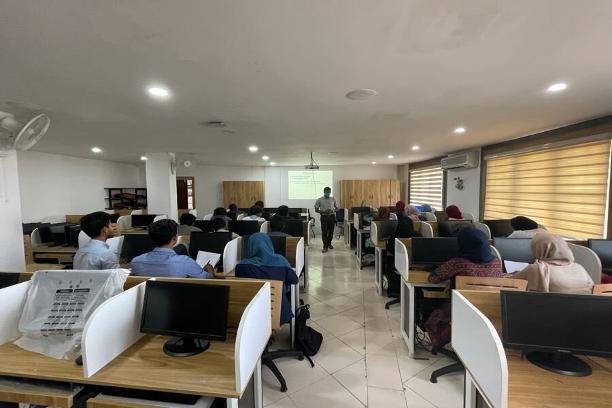
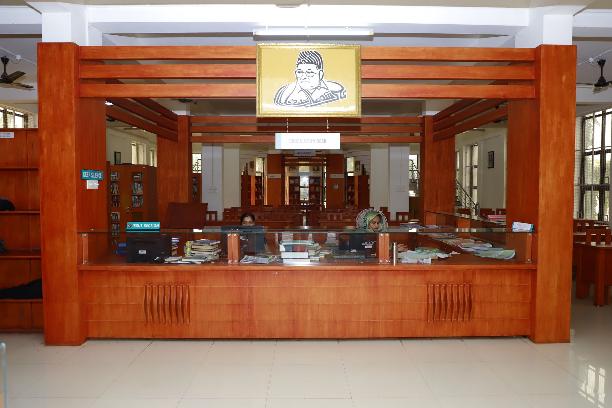
🌐 ICT Enabled Campus
🏫 High-Speed Wi-Fi – The college campus is equipped with high-speed, Wi-Fi-enabled internet services for seamless digital access.
🎦 CCTV Surveillance System – To ensure safety and security, the campus has a network of 40 CCTV cameras strategically placed and connected to internal servers.
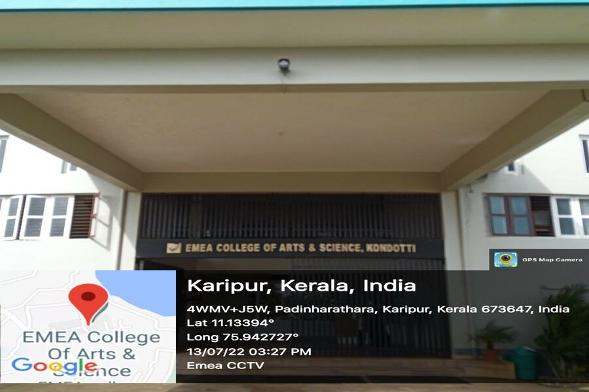
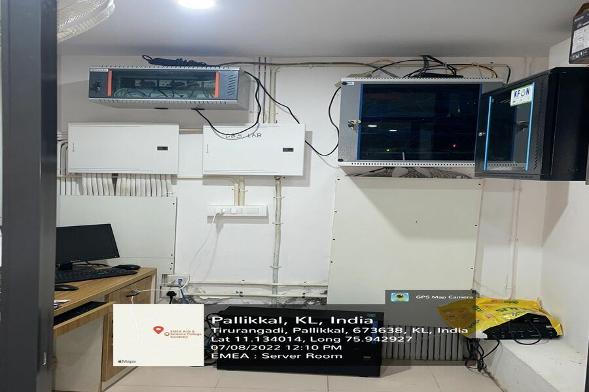
🏛 ICT Enabled Administrative Services
📧 Individual Email IDs – Provided to students, faculty, and staff for seamless communication.
💻 Google Services – Access to Google Classroom, Google Drive, and Google Meet for effective digital learning and collaboration.
⚡ High-Speed Servers – Powering administrative services, online attendance, and assignment submissions for smooth academic operations.
📚 E-Learning
E-learning is an integral part of the institute’s teaching-learning process. Daily e-learning content is shared in various formats to enhance student engagement and assessment.
The college leverages ICT initiatives from MHRD, UGC, and Inter-University Centres (IUCs) such as:
📖 INFLIBNET – Information and Library Network
🎥 CEC – Consortium for Educational CommunicationThese digital platforms provide students and faculty with access to a wealth of educational resources, broadening their learning horizons.
🔗 Below is a list of ICT initiatives with access links:
4. 📖 e-ShodhSindhu:it provides current as well as archival access to more than 15,000 core and peer-reviewed journals and a number of bibliographic, citation and factual databases in different disciplines from a large number of publishers and aggregators to its member institutions including centrally-funded technical institutions, universities and colleges.
☁️ EDMODO (Cloud-Based Learning Management System)
📚 Edmodo is an educational technology platform designed for communication, collaboration, and coaching in educational institutions.
🔹 Key Features:
✅ Content Sharing – Teachers can upload and distribute study materials.
✅ Assignments & Quizzes – Create, distribute, and track student assignments & online tests.
✅ Academic Groups – Organize students into learning communities for better engagement.
✅ Performance Tracking – Monitor student progress through built-in analytics.
✅ Seamless Communication – Manage interaction between students, teachers, and parents.Edmodo provides an interactive digital classroom experience, enhancing teaching and learning efficiency.
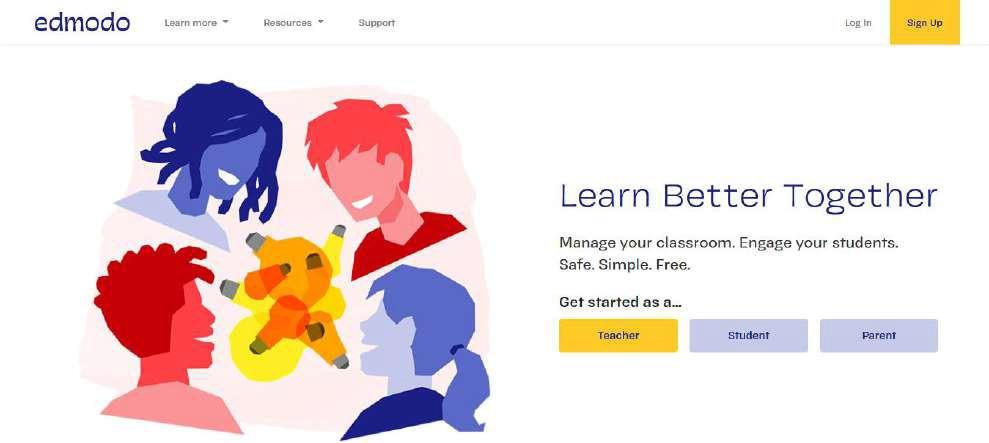
Google Class Rooms
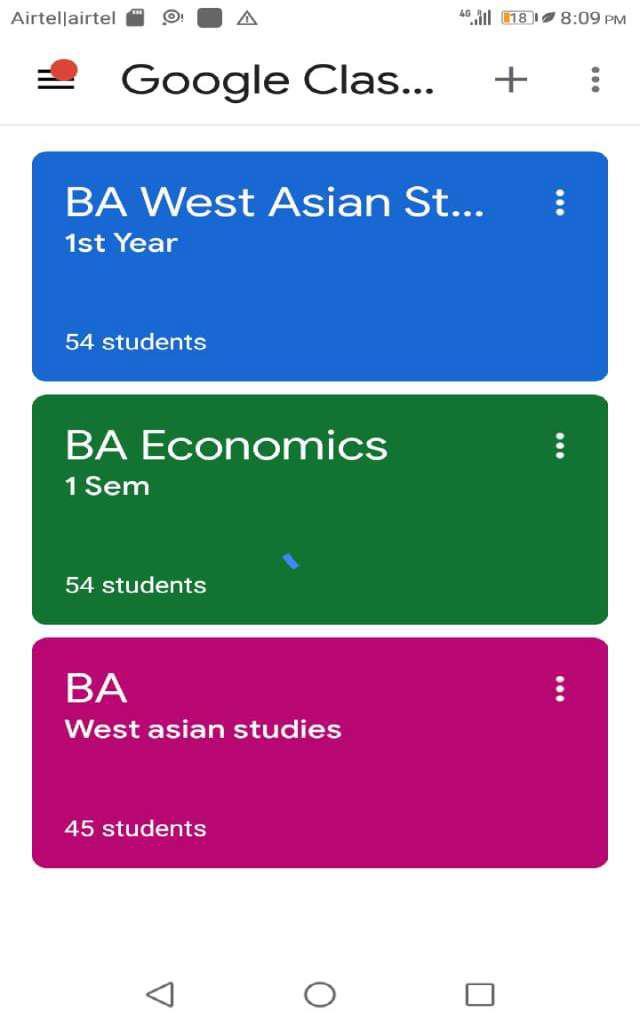
GOOGLE Meet
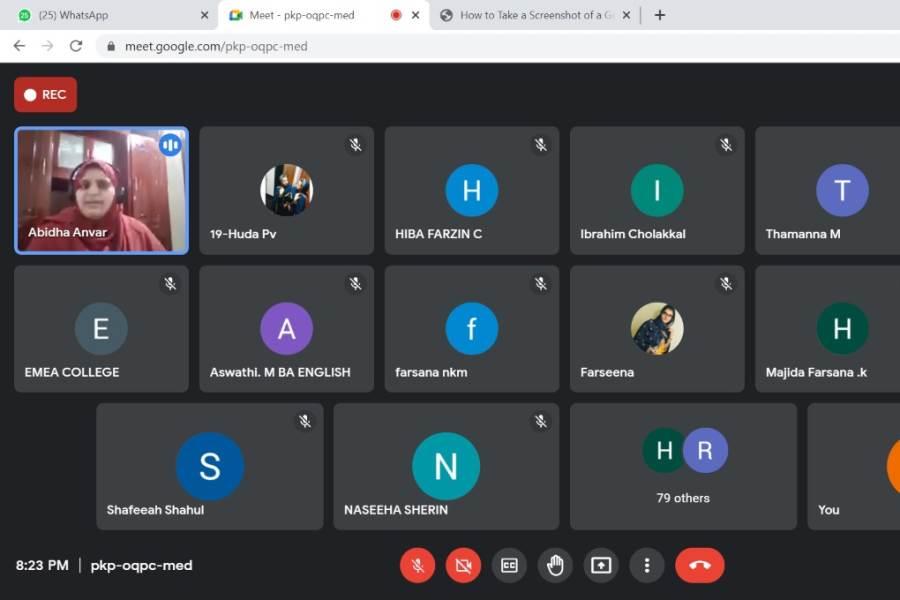
Administrative Office
The EMEA College Administrative Office functions as the central hub for managing administrative tasks and student services, ensuring the smooth operation of the institution.
Key Responsibilities & Services:
- 🎓 Student Support: Handles admissions, registration, academic records, and financial aid inquiries.
- 👥 Faculty & Staff Coordination: Acts as a liaison between faculty, staff, and students to streamline communication.
- 🎭 Event Management: Organizes academic, cultural, and administrative events on campus.
- 🏫 Campus Facilities & Resource Management: Maintains infrastructure, IT services, and general campus upkeep.
- ⚖ Policy & Compliance: Ensures adherence to academic regulations and institutional policies.
The Administrative Office is committed to enhancing the student experience, supporting faculty, and ensuring the efficient delivery of college services. Would you like to highlight any specific student services or contact details for accessibility
Well Equipped Class Rooms Empowering Teaching and Learning through Technology
At EMEA College, we recognize the pivotal role of Information and Communication Technology (ICT) in revolutionizing education. With the phenomenal growth of communication technology, computer networks, and information technology, the learning environment is evolving, offering unparalleled opportunities for both teaching and learning. The integration of these technologies transforms the classroom into a dynamic space where interactivity, flexibility, and convenience thrive.
Key Features of Our Well-Equipped Classrooms
-
📺
Interactive Panels
At EMEA College, we believe in providing a modern and dynamic learning environment. To enhance both teaching and learning, every classroom is equipped with 65-inch Interactive Panels. These cutting-edge tools play a pivotal role in transforming the traditional classroom setting into an interactive, technology-driven space that fosters engagement, collaboration, and effective learning. -
📽
LCD/Overhead Projectors
Several of our undergraduate classrooms are equipped with LCD and overhead projectors, allowing professors to project visuals, videos, and other media content to the entire class. This visual aid enhances learning by presenting complex information in a way that is easier to understand and remember. -
🌐
Internet Connectivity
High-speed internet connectivity in every classroom enables students and teachers to access online resources, collaborate in real-time, and participate in virtual learning activities. This internet access supports the integration of digital tools and platforms into everyday teaching and learning. -
🔊
Audio-Visual Support
In addition to the smart boards and projectors, classrooms are equipped with audio-visual systems, ensuring that multimedia presentations, videos, and lectures are clearly audible and visually impactful. These systems enhance engagement and help create a more immersive learning experience. -
🖥
Computer Stations
Some classrooms are also equipped with computers, giving students the ability to use digital tools and conduct research during class hours. These workstations support the integration of hands-on, practical learning with theoretical knowledge.
Departments
EMEA College offers a diverse range of academic departments, catering to various fields of study and career aspirations. This reflects the institution’s commitment to delivering comprehensive education across multiple disciplines. The college provides undergraduate, postgraduate, and, in some cases, doctoral programs tailored to meet the evolving demands of the global job market.
The Science Department emphasizes research and innovation, encouraging students to explore the natural world through practical and theoretical learning. The Engineering and Technology Department equips students with technical expertise and problem-solving skills essential for addressing contemporary challenges. The Business Department offers insights into commerce, finance, and management, preparing students for leadership roles in the corporate sector. Meanwhile, the Arts and Humanities Department fosters creativity, critical thinking, and a deeper understanding of human culture and society.
Each department is led by experienced faculty members dedicated to academic excellence, research, and student mentorship, ensuring a supportive and enriching learning environment.
Seethi Haji Auditorium
The Seethi Haji Auditorium is a spacious and well-equipped venue that serves as the cultural and academic hub of the college. With a seating capacity of 1200, it provides an excellent space for hosting various events.
Key Features:
❄ Fully Centralized Air-Conditioning – Ensures a comfortable environment for all events.
🔊 Light & Sound Systems – Enhances the event experience with upgraded audiovisual technology.
🎓 Hosts Academic & Cultural Events, including:
📖 College seminars, workshops, and conferences.
🎭 Cultural performances, student festivals, and competitions.
🎤 Special guest lectures and interactive sessions.
🌍 Encourages External Cultural Groups – Provides a platform for programs that benefit students and the local community.
The EMEA Auditorium stands as a symbol of vibrant academic and artistic expression, fostering learning, creativity, and collaboration among students, faculty, and the broader community.
Seminar Hall
EMEA College features a well-equipped seminar hall, designed with state-of-the-art technology to enhance learning and presentation experiences. Located on the second floor, the hall provides a conducive environment for academic discussions, workshops, conferences, and guest lectures.
Key Features:
🎤 Modern Audio-Visual Equipment – Ensures seamless presentations with high-quality technology.
🪑 Comfortable Seating Arrangements – Designed to accommodate students, faculty, and guests.
📽 Projectors & High-Quality Sound Systems – Ideal for lectures, discussions, and screenings.
🖥 Interactive Panel (75-inch) – Enhances collaborative and engaging learning experiences.
❄ Air-Conditioned Spaces – Provides a conducive learning atmosphere.
📌 Usage and Purpose:
📚 Hosting – Seminars, workshops, and conferences.
🎓 Conducting – Academic presentations and interactive sessions.
👨🏫 Organizing – Faculty development programs.
🎙 Providing a Venue – For guest lectures and panel discussions.
Heritage Museum
Malabar Heritage Museum
Heritage Studies provides an exciting new approach to the study of history. It develops an understanding of heritage as the public face of history and encourages a critical awareness of the debates around how we interpret and use the past. Heritage Studies explores a number of different key issues:
- The issue of what is ‘real’ and what is ‘bogus’ history.
- How the past is represented in forms of public history, such as memorials, plaques, statues, art and architecture.
- The representation of the past through TV and film.
- How museum curators and heritage practitioners collect, preserve and represent the past.
- The role of the heritage industry in modern society.
- The role of museums and heritage sites in the processes of lifelong learning.
Heritage is “Anything which has been transmitted from the past or handed down by tradition”. Clearly, the origin of the term ‘Heritage’ seems to be closely associated with Heir, Heredity and Inheritance – anything that is inherited down the generations. Anything, whether tradition, custom, history, religion and religious observances, philosophy, art styles/performing arts, monumental objects and even nature’s manifestations, could be treated as Heritage provided the same has been transmitted from the past. And, further, depending on the nature of the particular object or property, it may be classified, and distinctly identified as ‘Social Heritage’, ‘Cultural Heritage’, ‘Religious Heritage’, ‘Artistic Heritage’, ‘National Heritage’, etc. Ashworth and Tim Bridge opine that the link between the preservation of the past for its intrinsic value and as a resource for a modern community or commercial activity is Heritage.
Examination Hall
The Examination Hall at EMEA College is designed to provide a spacious and conducive environment for students during exams.
Key Features:
👥Capacity: Accommodates 200 students at a time.
📏 Area: Spread over 250 sqm for a comfortable seating arrangement.
🪑 Well-Spaced Seating: Ensures adequate distance between students to maintain exam integrity.
✍ Writing Benches & Desks – Equipped for convenience and ease during exams
💡Proper Ventilation & Lighting to enhance focus and comfort.
This hall is primarily used for university and internal examinations, and can also serve as a venue for competitive exams, certification tests, and workshops.
Open Air Class Room
EMEA College is committed to fostering a joyful and engaging learning experience that goes beyond the traditional classroom setting.
Key Highlights:
- Open & Interactive Learning Spaces: Education is not confined to four walls; students and teachers engage in discussions in a more natural and inspiring environment.
- Eco-Friendly Campus: The lush green surroundings create a refreshing and stimulating atmosphere, making learning more enjoyable and effective.
- Holistic Education Approach: Encourages spontaneous and unhindered knowledge transmission, ensuring that students develop a deep connection with their subjects.
- Innovative Teaching Methods: Incorporates experiential learning, outdoor sessions, and hands-on activities to break the monotony of conventional teaching.
By integrating nature and education, EMEA College ensures that students experience a well-rounded and fulfilling academic journey.
Open Air Theatre
The Open-Air Theatre at EMEA College serves as a vibrant cultural hub, located in the heart of the campus.
Key Features:
- 👥 Capacity: Can accommodate 200 people at a time.
- 🎭 Multi-Purpose Venue: Used for cultural performances, evening talks, and various stage events.
- 🏛 Aesthetic & Functional Design: Blends natural elements with modern architecture, creating an inspiring atmosphere for events.
- 🚀 Enhancing Student Engagement: Provides a dynamic space for students to express creativity, showcase talents, and engage in intellectual discussions.
Classroom Announcement System
The EMEA College Classroom Announcement System represents a pivotal component in the institution's educational infrastructure, designed to streamline communication between faculty and students. This modern, digital platform enables instructors to disseminate important information swiftly and efficiently, ensuring that all students are kept abreast of course updates, deadlines, changes in the schedule, and urgent notifications.Functioning across various digital devices and platforms, the system allows for real-time updates, facilitating a seamless flow of information that is crucial for maintaining the academic calendar's integrity and assisting students in managing their study schedules effectively. It also supports interactive features, such as Q&A sessions, polls, and feedback collection, enhancing student engagement and participation in the educational process.By leveraging this technology, EMEA College aims to foster a more connected, informed, and responsive academic environment, where communication barriers are minimized, and educational experiences are enriched for both teachers and learners.
Classroom Announcement System
The Classroom Announcement System at EMEA College is a modern communication tool that ensures efficient and real-time information sharing across classrooms and academic buildings.
Key Features & Benefits:
- 📢 Seamless Information Flow: Enables timely dissemination of important announcements, schedules, and emergency alerts.
- 🔄 Enhanced Coordination: Helps in synchronizing academic activities, examinations, and events across the campus.
- 📚 Improved Learning Experience: Minimizes disruptions by providing clear, organized, and instant communication.
- 🖥 User-Friendly Interface: Designed for easy operation, ensuring effective use by faculty and administration.
.
The College Server Room: Advanced Infrastructure for Seamless Connectivity and Security
Our Server Room, located in the Ground Floor Computer Lab, is equipped with cutting-edge technology to support the college’s digital operations. It serves as the backbone for our network and data infrastructure, ensuring reliable access to essential online resources, secure communication, and smooth academic and administrative processes.
Key Features of the Server Room
The Server Room is equipped with some of the latest technologies to ensure high performance, security, and continuous connectivity for our college community:
🖥️ Lenovo ThinkSystem ST550 Tower Server:
The ThinkSystem ST550 is a powerful and reliable server designed to handle the college’s growing digital needs. With its high processing power, storage capacity, and scalability, it supports the college’s essential services, including data storage, website hosting, and management of online platforms. The server helps deliver smooth and efficient performance for all our IT requirements.
🛡️ Fortinet FortiGate 100F Firewall:
To safeguard our digital infrastructure, the FortiGate 100F firewall provides robust network security by protecting the college from potential cyber threats. It offers advanced features like intrusion prevention, web filtering, and VPN (Virtual Private Network) support, ensuring that all data exchanges within the college network remain secure and private. The firewall is an essential component for maintaining the integrity of the college's systems and preventing unauthorized access.
🌐 2 Dedicated Fiber Internet Connections:
The Server Room is equipped with two dedicated fiber-optic internet connections to ensure uninterrupted and high-speed connectivity across campus. These connections are provided by Alliance SME (300 Mbps) and Kerala Vision (100 Mbps). This dual-connection setup provides redundancy, meaning that if one connection experiences issues, the second one will automatically take over, ensuring continuous and reliable internet access for students, faculty, and staff.